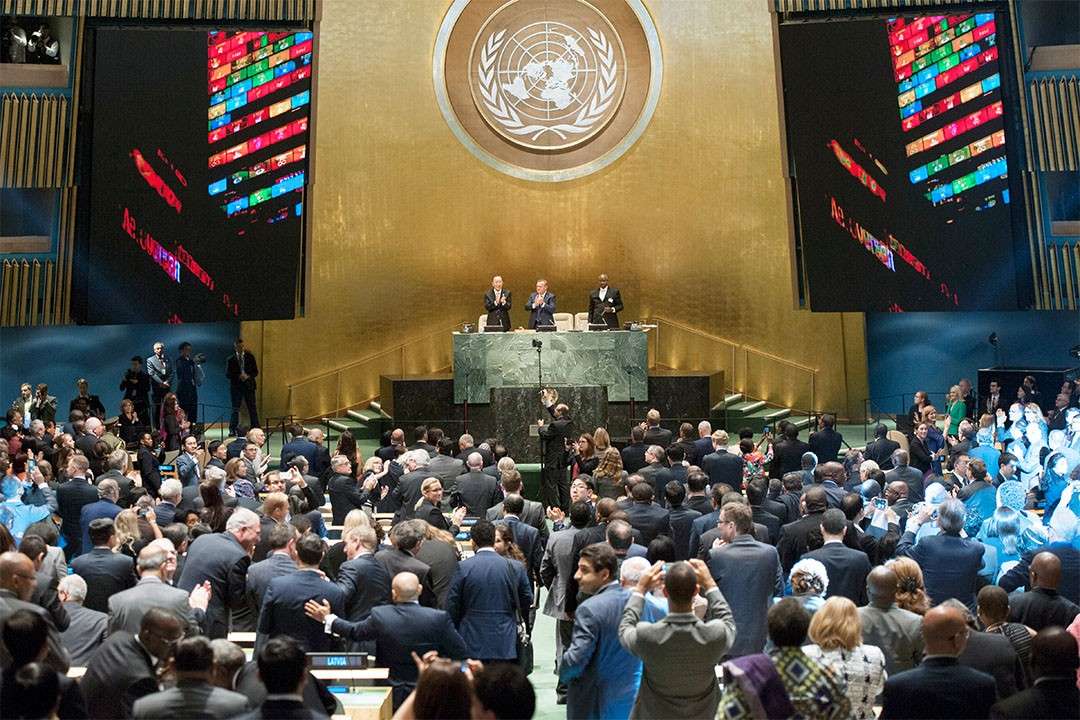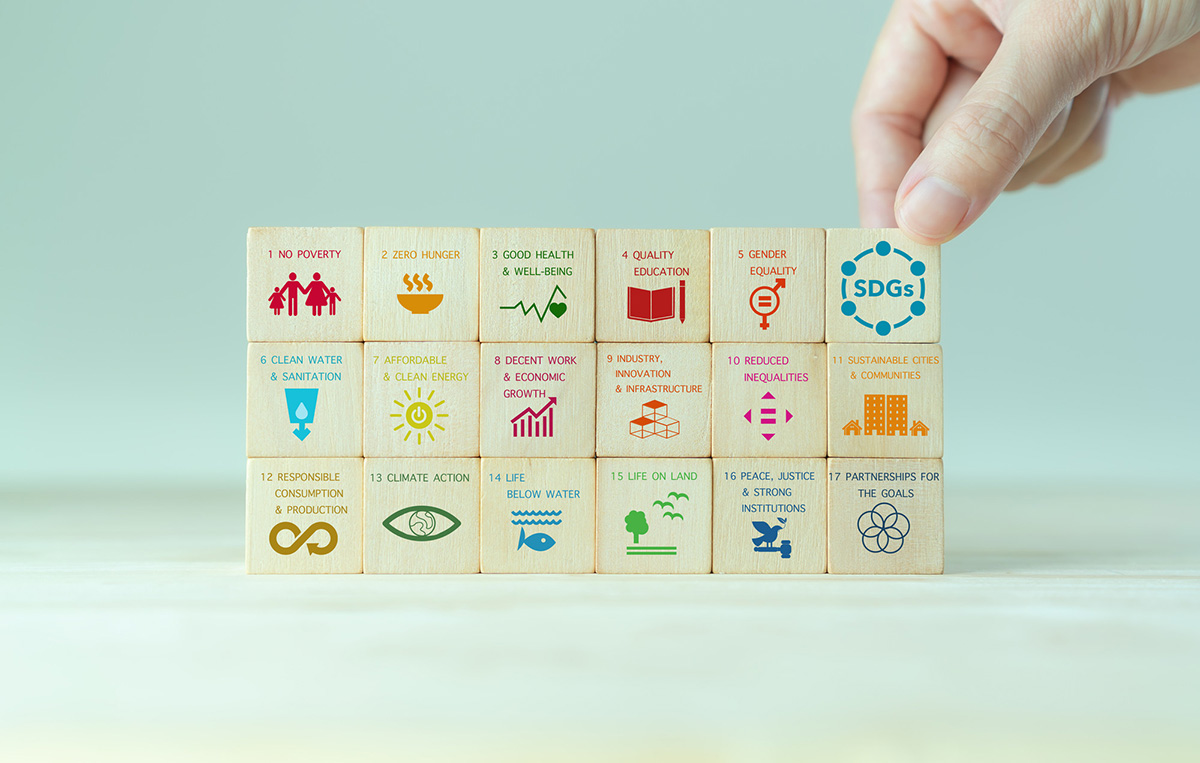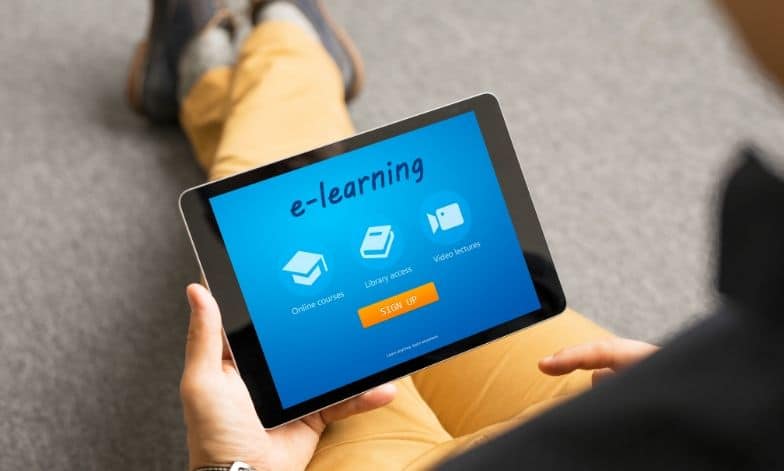The International Institute for Sustainable Development (IISD), together with the Stakeholder Forum, organized a webinar to explore ways the Rio+20 outcome laid the foundations for the SDGs and how it “still advances the objectives the SDG Summit will seek to reinforce.” Speakers stressed the universal, integrated, and interrelated nature of the Goals and underscored the need for transformative, disruptive approaches to implementation.
The IISD event webpage highlights that we are now in the tenth year since the 2012 UN Conference on Sustainable Development, also known as Rio+20, or the Earth Summit, adopted ‘The Future We Want’ outcome document. The Rio+20 outcome included a decision calling for the negotiation of the SDGs. Three years later, countries adopted the 2030 Agenda for Sustainable Development and its 17 Goals, giving the world “a dynamic blueprint for addressing multiple challenges in an integrated manner.”
In an effort to reinforce the foundation the SDG Summit will build upon, “speakers who were central to the negotiation of the Rio+20 outcome” re-examined the origins of the SDGs and provided recommendations going forward.
Lynn Wagner, Senior Director, Tracking Progress Program, IISD, welcomed participants. She noted that the webinar is part of a series IISD will convene on the road to the SDG Summit in September.
Irena Zubcevic, Director, Stakeholder Forum for a Sustainable Future, moderated the event. She emphasized that without the Rio+20 talks, there would be no SDGs.
Paula Caballero, Regional Managing Director, Latin America, The Nature Conservancy, and Rio+20 negotiator for Colombia, highlighted that the SDGs were not “inevitable” but, rather, “miraculous.” There was a concern, she explained, that the SDGs would be a “rollover” of the Millennium Development Goals (MDGs), which had been “insufficient, minimalist, and myopic,” and divided the world into developed and developing countries. The world needed a universal agenda, she said, underpinned by a systems-change, transformational approach that would look at development across the board.
“It is impossible. Until it happens,” Caballero stated, quoting Nelson Mandela. She urged participants to “look at what is needed, not what is possible” when implementing the SDGs. By “wedding” the MDGs and the Earth Summit, she explained, the 2030 Agenda talks “went against the grain” of how UN negotiating processes were set up, and called for the same boldness and ambition in implementing the SDGs.
Caballero urged looking at synergies and trade-offs among the Goals, and warned about persisting siloed mentalities. “We’re not being as disruptive as we need to be,” she stated, highlighting COVID-19 pandemic recovery as a “missed opportunity.” Describing the current direction of travel as business-as-usual (BAU), Caballero underscored that at the core of SDG implementation is the idea that “2030 is now.” The decisions we take today will “lock in entire pathways to take us to a different reality,” she cautioned.
Calling for disruptive pathways where the natural, economic, and human capital are mutually reinforced, Caballero outlined the need to align the SDGs with climate action, the Global Biodiversity Framework (GBF), and water action, and to bring governments and stakeholders together to “eradicate … a relentless wall of lava of extractive and exploitative production and consumption patterns.”
Farrukh Khan, Director General (Economic Coordination, Economic Diplomacy & OIC), Ministry of Foreign Affairs, Government of Pakistan, and Rio+20 negotiator for Pakistan, regretted that having failed to learn from MDG implementation, we are now “on a mission to rescue the SDGs.” Emphasizing the SDGs as “universal, integrated, and interrelated,” he said they were never conceived to each have its own “box,” its own fund, and its own multilateral body. He lamented the lack of effort to identify areas for intervention that could catalyze progress on other SDGs.
Khan highlighted five lessons from SDG implementation:
- Linkages among the SDGs are “way off track.”
- The UN system is not on a path to deliver the SDGs by 2030, and without UN reform, “we can’t expect a different answer from the same people to the same question.”
- By seeking commitments of trillions of dollars to support individual SDGs, instead of acting in line with the “integrated, universal, and interrelated” nature of the Goals, we are setting ourselves up for failure.
- Local governments and communities are supposed to be a key actor, yet neither “are in the picture.”
- The business case for the SDGs “has not taken off.”
Khan recommended that:
- the SDG Summit identify entry points where investment can generate synergies among the SDGs, noting that investment in health (SDG 3), education (SDG 4), and social justice (SDG 10), can catalyze progress on other Goals;
- a working group endeavor to “reduce confusion on financing numbers,” with a view to making it part of the SDG Summit outcome;
- governments put a price on carbon, put a price on natural capital, and legislate the SDGs, to enable business to align their operations accordingly; and
- local governments be at the center of decision making.
Marianne Beisheim, Senior Associate at Stiftung Wissenschaft und Politik (SWP), German Institute for International and Security Affairs, highlighted the SDGs as a dynamic blueprint to address interrelated challenges, while being inclusive and participatory, and leaving no one behind (LNOB). She said at the mid-point in SDG implementation, Member States need to make better use of voluntary national reviews (VNRs) to achieve true transformation and acceleration. Beisheim noted that this year’s Global Sustainable Development Report (GSDR) will talk about disruption and the need for better integration in forging transformational pathways.
Beisheim highlighted water as a “true connector,” and outlined cities and local governments’ role in “bringing us forward.” For the SDG Summit, she stressed the need for, inter alia: an SDG stimulus, not “repackaging”; financial architecture reform; going beyond gross domestic product (GDP); digital innovation; and integrating long-term thinking into decision making. Emphasizing that political will is crucial, Beisheim identified the need to unpack what motivates States and governments to act.
During the question-and-answer session, Caballero cautioned against approaching the GBF as a “biodiversity agenda.” She said unless we see it as a foundation of how we live on Earth, with environmental, economic, and social implications treated equally, its impact will be marginal.
Noting that “some levels of investment can help lift others,” Khan urged finding entry points that will help boost the SDGs.
On impacting political will, Beisheim called for phasing out unsustainable policies while also addressing “winners and losers” this approach will create. Noting one cannot expect politician to “up the ante,” Caballero emphasized the decisive role of civil society in enabling deep shifts to bring about change.
Zubcevic said civil society should play a role of an ecosystem, a repository, and a community of practice where actors can come together and work with governments and the private sector to find pathways to acceleration. [SDG Knowledge Hub Sources]
Credit:Source link



